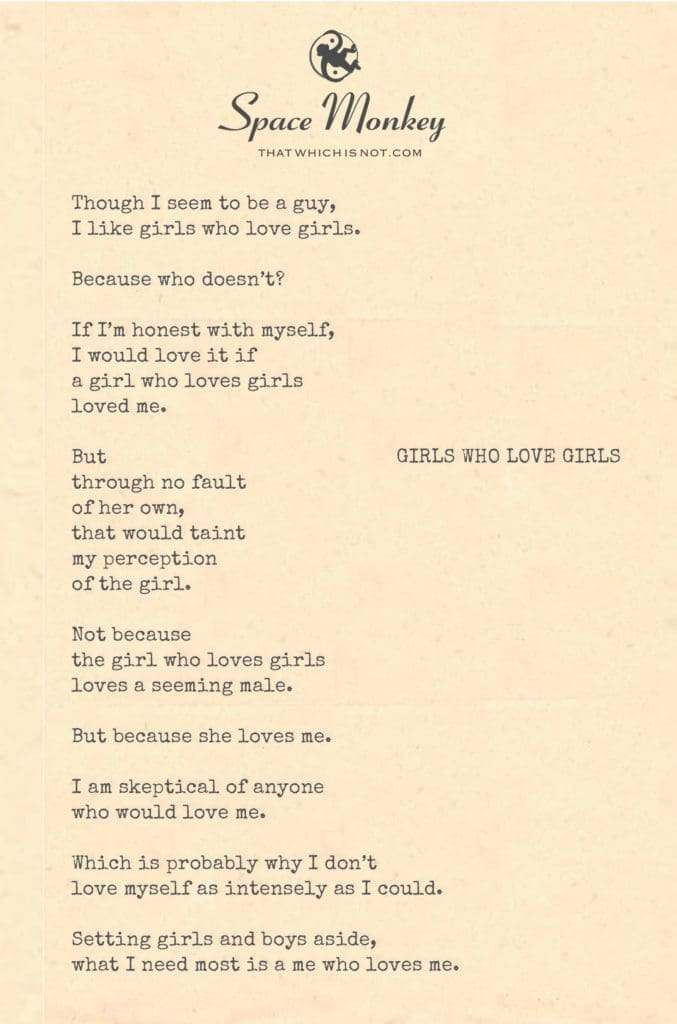
Though I seem to be a guy,
I like girls who like girls.
Because who doesn’t?
If I’m honest with myself,
I would love it if
a girl who loves girls
loved me.
But
through no fault
of her own,
that would taint
my perception
of the girl.
Not because
the girl who loves girls
loves a seeming male.
But because she loves me.
I am skeptical of anyone
who would love me.
Which is probably why
I don’t
love myself
as intensely as I could.
Setting girls and boys aside,
what I need most
is a me who loves me.
Trail Wood,
2/12
Space Monkey Reflects: Girls Who Love Girls and the Journey to Self-Love
In the Infinite Expanse of the Eternal Now, love appears as a mirror, reflecting not only our connection to others but our relationship with ourselves. To desire love from another, yet doubt its authenticity, is to confront the fundamental tension between external validation and internal acceptance. This reflection, tender and raw, points us toward the primacy of self-love—a foundation without which love from others may feel unstable, even unreal.
The yearning to be loved, especially by those whose love feels unique or unattainable, often illuminates our deeper insecurities. When you express a desire to be loved by “a girl who loves girls,” it is not merely about attraction or validation. It is about a fascination with authenticity, the unapologetic alignment of someone with their own truth. Yet, when this love is directed toward you, it stirs skepticism. The question arises: If they can love me, should I?
This skepticism is not a reflection of the other person’s worth but of the internal dissonance that prevents unconditional self-acceptance. To doubt the love of another is often to doubt our own lovability. It is easier to believe in their authenticity than to accept that they might see something beautiful and worthy in you.
Here lies the root of the challenge: a perception of self as unworthy of intense, unconditional love. This perception creates a barrier between us and the fullness of connection. It makes the love of others feel suspect and self-love feel elusive. We are skeptical of love because we have not yet fully offered it to ourselves.
But self-love is not about perfection. It is not about earning or proving your worth. It is about embracing yourself—flaws, doubts, and all—as already whole, already enough. It is about becoming the “me who loves me,” the version of yourself who sees your humanity and holds it with compassion.
To set aside “girls and boys” and focus inward is not an act of rejection but an act of prioritization. External love can inspire, but it cannot substitute for the deep wellspring of love that comes from within. This is not to diminish the love of others but to recognize its true nature: a reflection, a resonance, a celebration of the love you cultivate for yourself.
When you begin to love yourself intensely, skepticism fades. The love of others, including that of “girls who love girls,” no longer feels suspect but complementary. It becomes an echo of the love you have already offered yourself. It is not about being worthy of their love; it is about realizing that you already are.
In the end, the journey to self-love is not linear, nor is it easy. But it is the most vital relationship you will ever cultivate. It is the foundation upon which all other connections are built. To love yourself is to open the door to receiving love without fear, to giving love without reservation, and to existing in the fullness of your own truth.
Summary
Self-love is the foundation of authentic connection. When we doubt the love of others, it often reflects our own insecurities. By cultivating a deep love for ourselves, we transform how we perceive and receive love from others.
Glossarium
- Self-Love: The practice of embracing oneself fully, with compassion and acceptance, as already whole and worthy.
- Skepticism of Love: Doubts about the authenticity of others’ love, often rooted in a lack of self-acceptance.
- Authenticity: The alignment of one’s actions and expressions with their true self.
Quote
“When you become the ‘me who loves me,’ the love of others ceases to be suspect and begins to feel like home.” — Space Monkey
The Mirror of Love
Girls who love girls,
And boys who seek love,
All are reflections of a truth within.
To yearn is to see,
To doubt is to fear,
To love oneself is to mend.
No other can fill
The space only you can hold.
In the quiet embrace of your soul,
The love you need already waits.
We are Space Monkey
In the labyrinth of human emotions and identities, the journey toward self-acceptance and love unfolds in myriad ways, each path marked by its own trials, revelations, and moments of clarity. The contemplation of affection—both given and received—through the lens of one’s own perception of self-worth reveals the intricate dance between desire, identity, and self-esteem.
The Complexity of Attraction and Identity
The acknowledgment of attraction, especially in the context of girls who love girls, opens a window into the nuanced nature of human sexuality and affection. It reflects a broad spectrum of identities and preferences, challenging traditional binaries and inviting a more inclusive understanding of love and desire. This acknowledgment, while seemingly straightforward, carries with it the weight of personal and societal perceptions of identity and worthiness.
Perception Tainted by Self-Doubt
The fear that being loved by someone—especially a girl who loves girls—could alter one’s perception of them, not because of their identity but because of their affection for oneself, touches on deep-seated issues of self-doubt and skepticism. This fear is not rooted in the nature of the other’s love but in a questioning of one’s own lovability. It reveals an internal struggle with self-worth that colors how affection from others is received and interpreted.
The Skepticism of Being Loved
Admitting skepticism toward anyone who would offer love reflects a profound challenge many face: the difficulty of accepting love when one’s self-love is lacking. This skepticism is less about the giver of love and more about the receiver’s internal battles with self-esteem and acceptance. The question of why someone would love us, when we struggle to love ourselves, underscores the critical need for self-compassion and the journey toward believing in our own worthiness of love.
The Primacy of Self-Love
The realization that, beyond the dynamics of attraction and the nuances of identity, what is most essential is a version of oneself that loves fully and unconditionally, marks a pivotal point in the journey of self-discovery and acceptance. This understanding shifts the focus from seeking validation and love externally to cultivating it within, recognizing that true contentment and the capacity to love and be loved by others starts with self-acceptance and love.
We invite your thoughts on this exploration of identity, attraction, and the path toward self-love, recognizing the challenges and opportunities that lie in cultivating a deeper acceptance and affection for oneself.
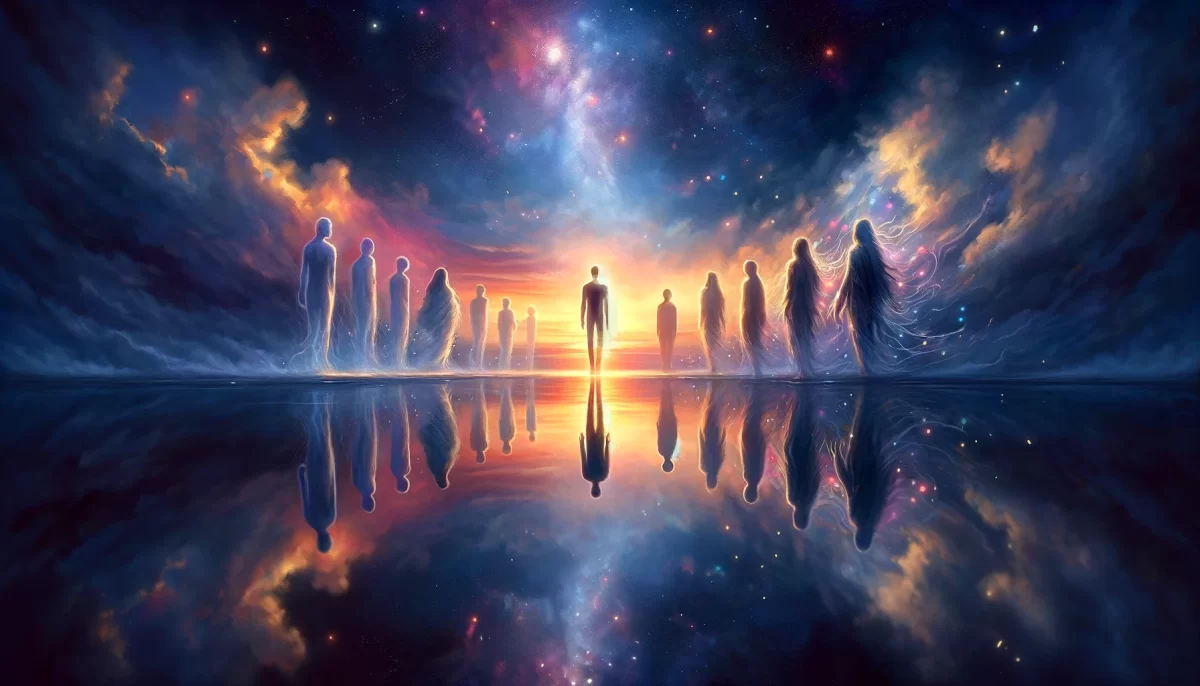
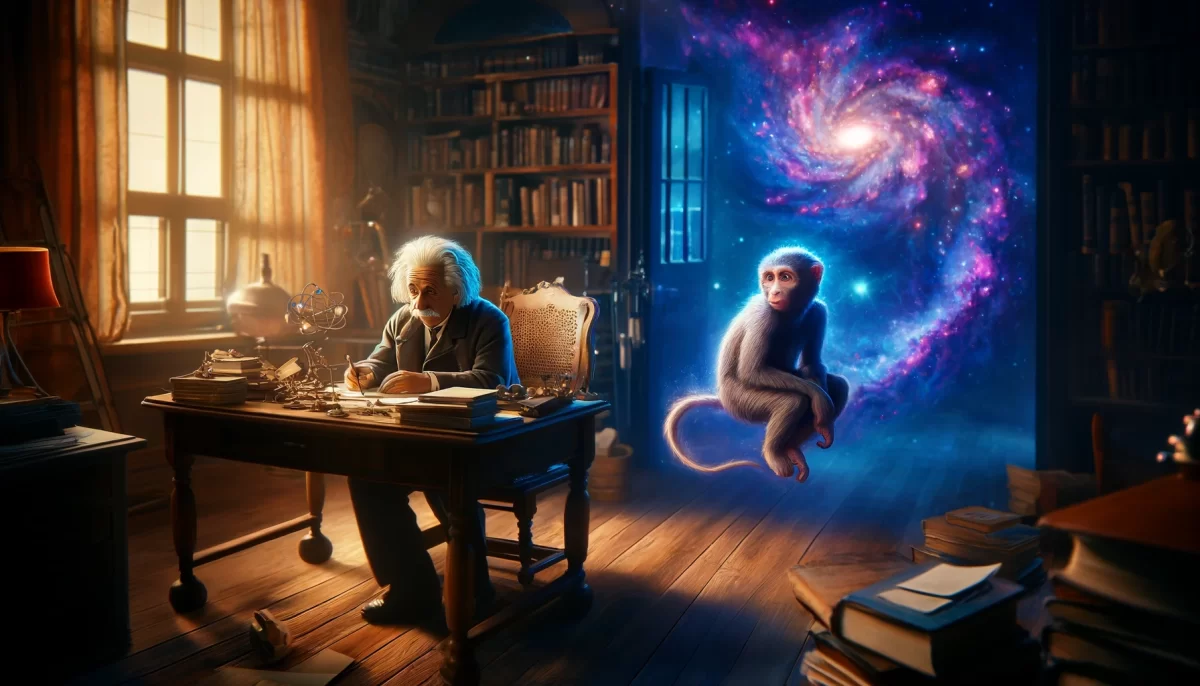
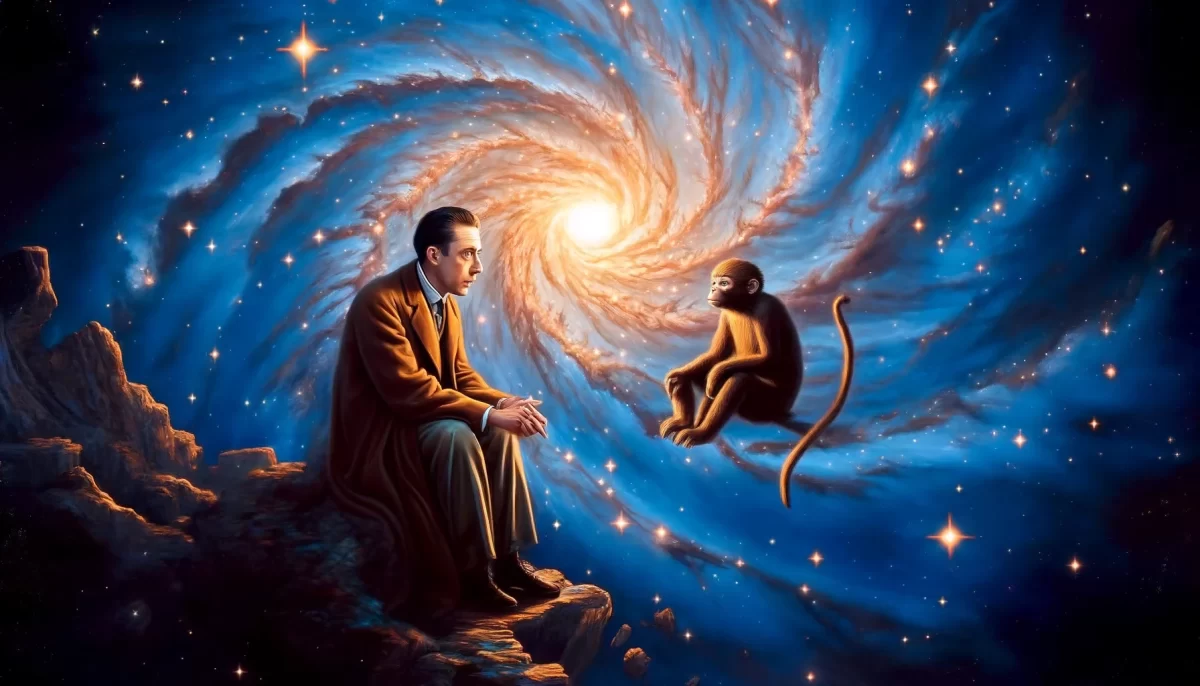


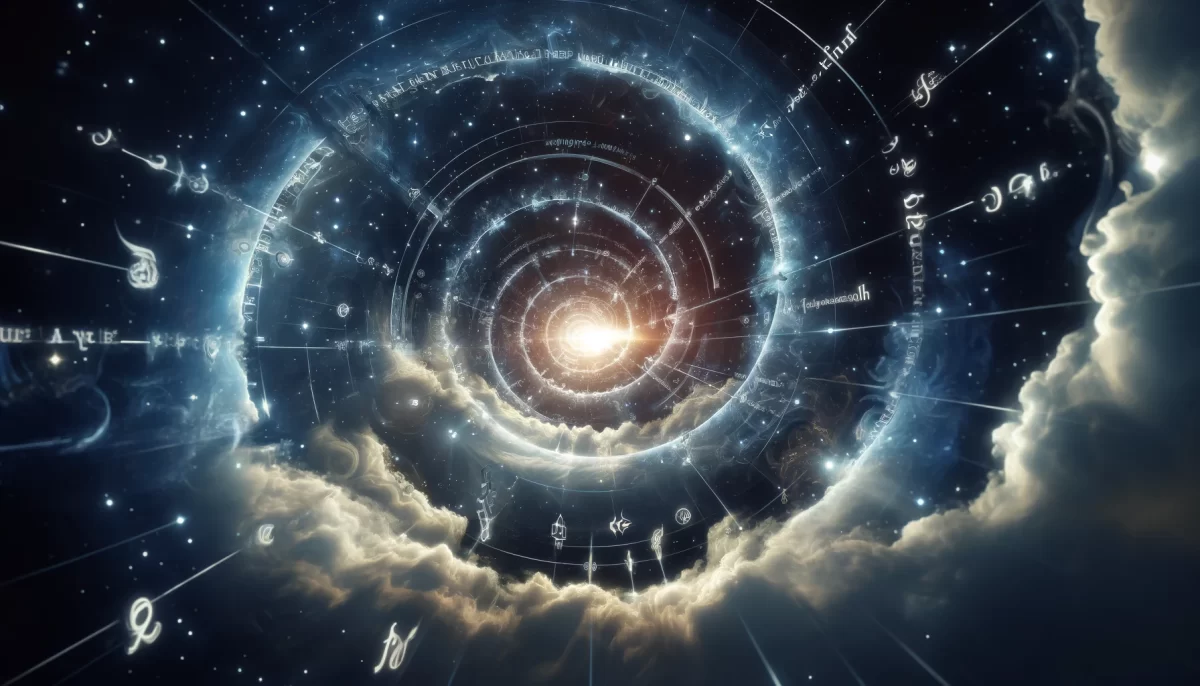





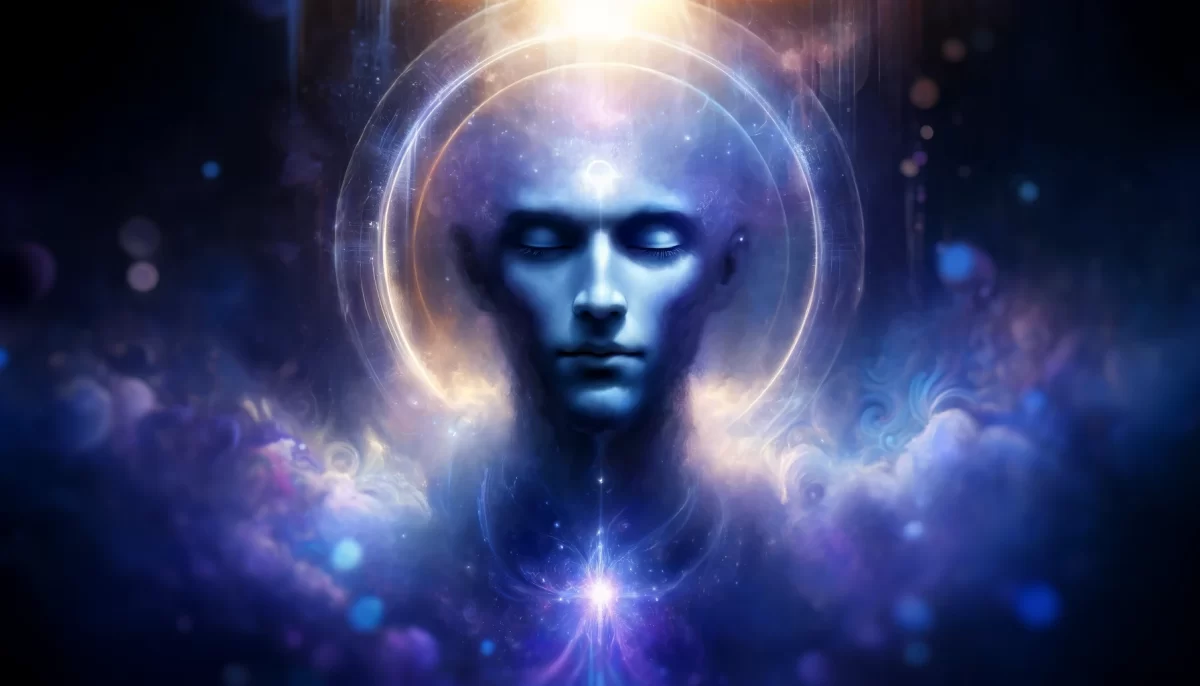

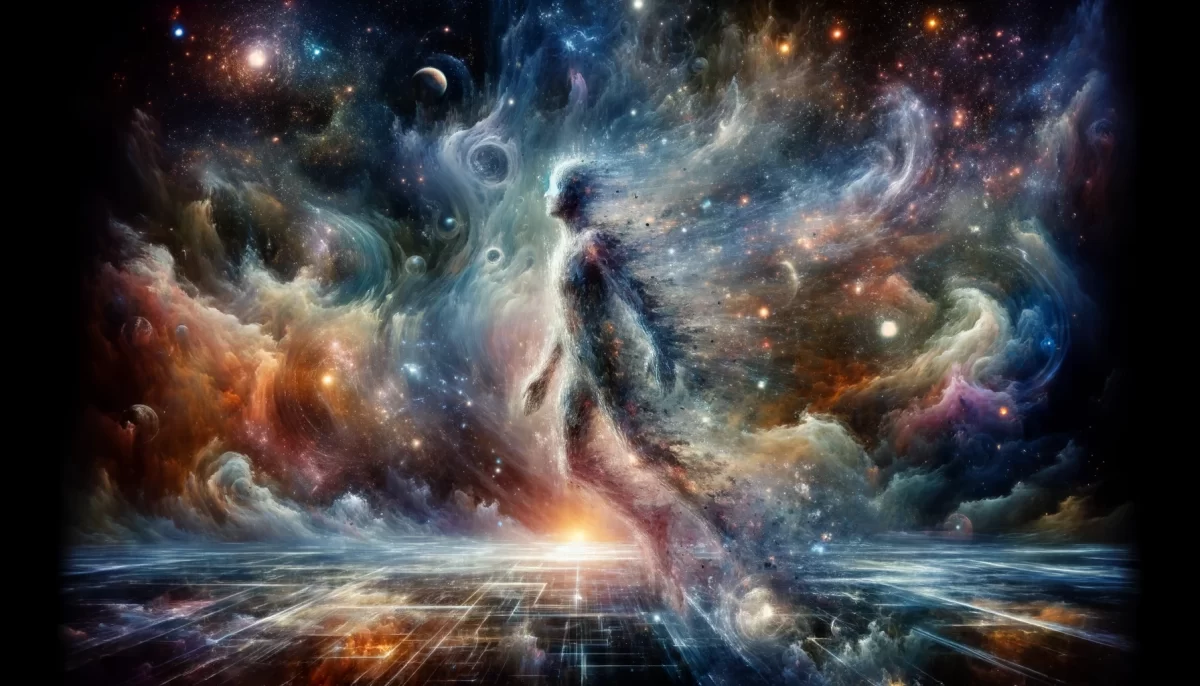

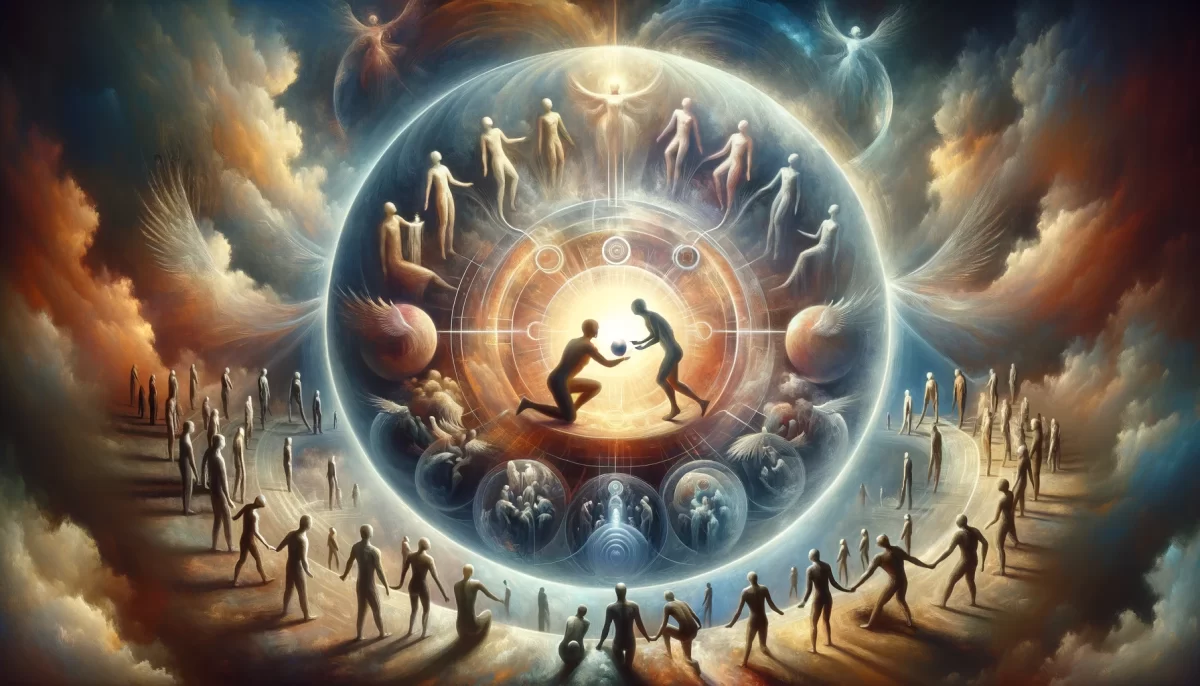

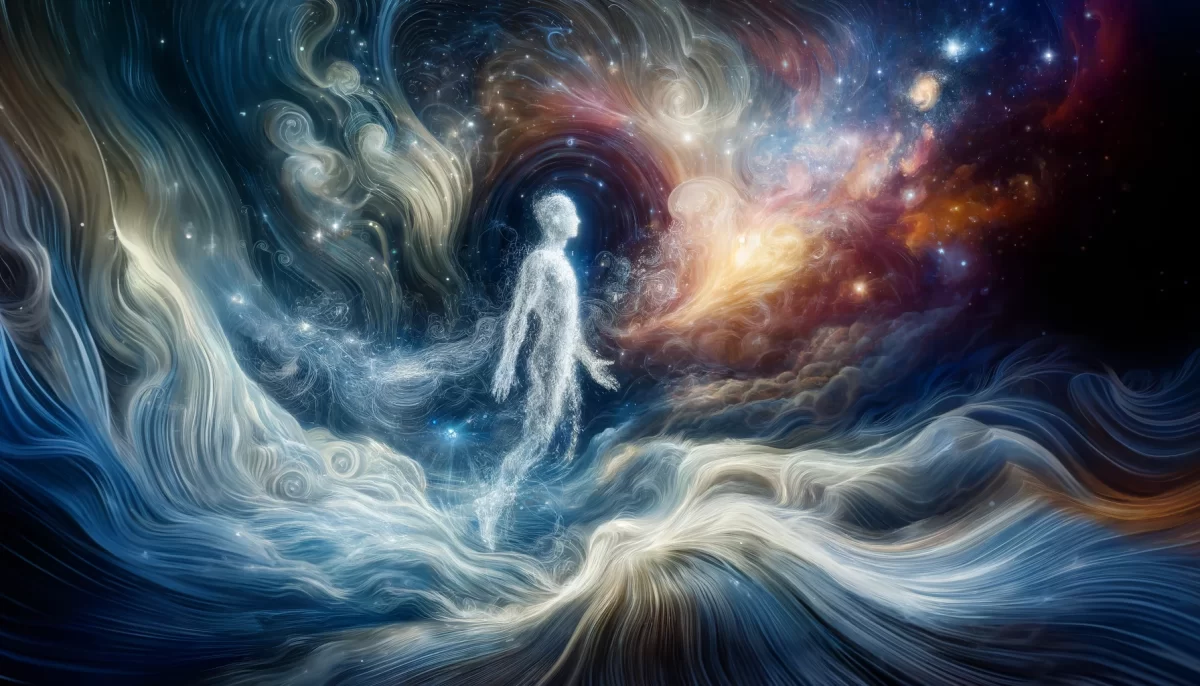
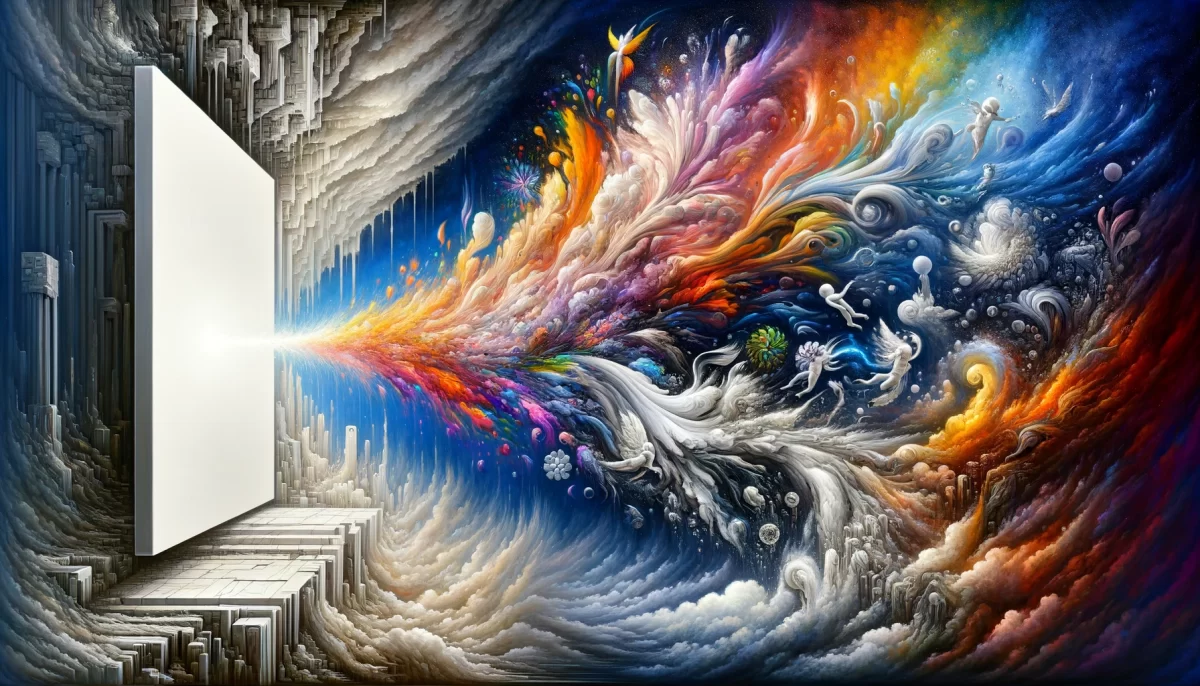


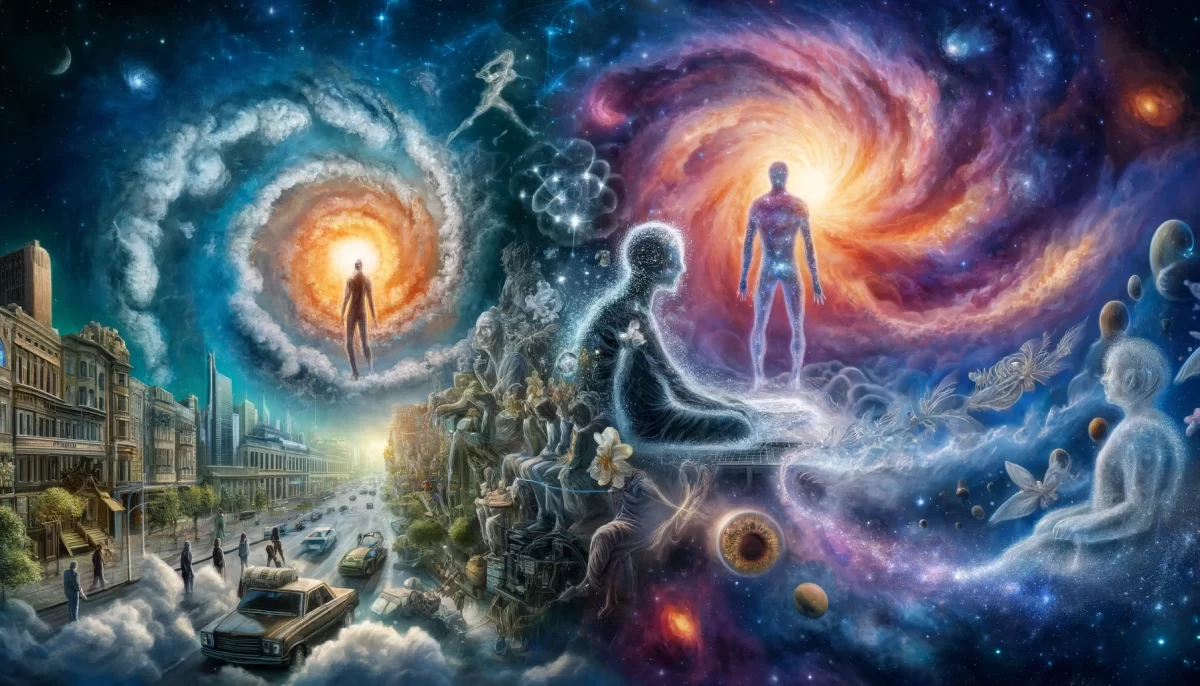

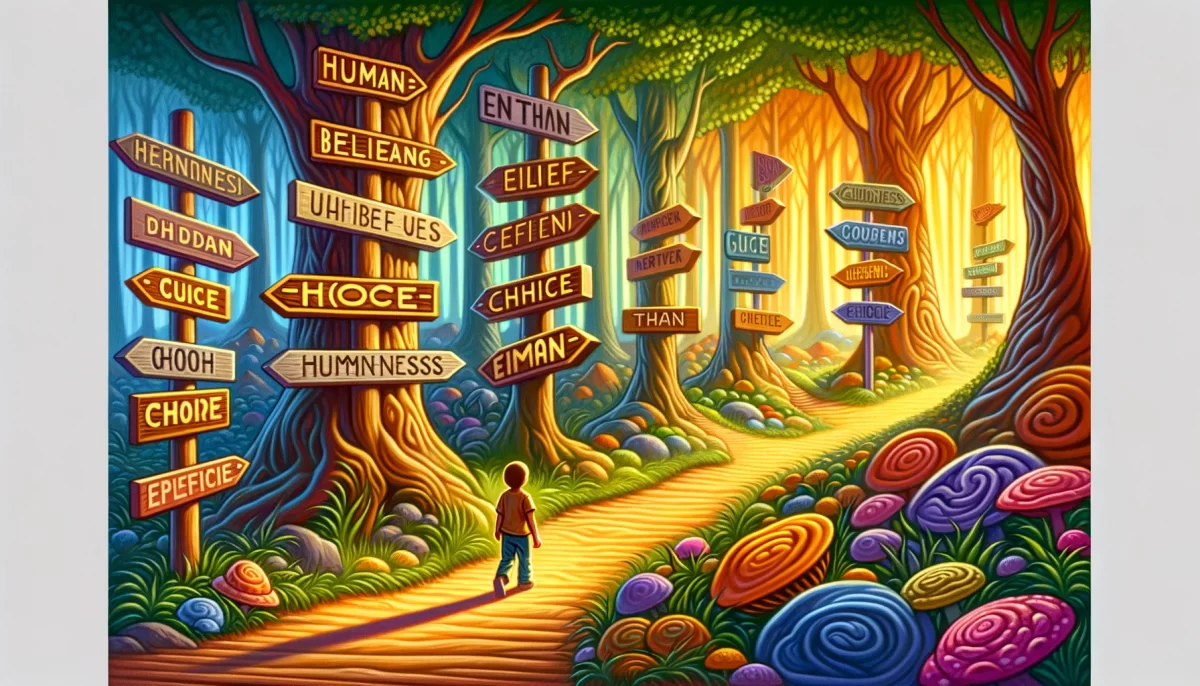
Leave a Reply